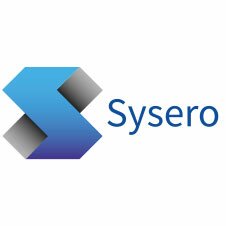Sysero: Legal self service – Must have workflows for the modern firm
It’s not surprising that lawyers work such long hours, when you consider they spend an average of almost 3 hours a day on administrative tasks. A large portion of lawyers’ time is spent reviewing legal requests and documents, completing repetitive transactional paperwork, and going through endless follow up cycles with clients. All of which take valuable time away from building better relationships with existing clients and pursuing new work.
The good news is that there is a better way to work. The answer lies in easy-to-use self-service portals that capture information directly from clients. This approach allows for transitions to be started at any time and completed much quicker than traditional processes. Clients enter the information directly, greatly reducing the potential for misunderstandings. Additionally, a transaction history is created providing complete transparency into the process.
By employing a series of automated workflows, a self-service portal can route information to relevant staff, and even create sets of customised documents using the data. The result is greater productivity, flexibility and transparency for both firms and their clients.
What is Legal Self-Service?
While the concept of self-service is far from new, it’s paving a new way of working within the legal industry. For years, other industries have tapped into self-service to provide customers with instant access to information or services, allow personalisation, and save valuable time and resources. Take for example, how almost all of your banking needs today can be done via an online portal or app.
When it comes to the legal sector, firms are turning to self-service portals to allow clients to initiate transactions and meet regulatory requirements. Legal self-service portals present law firm clients with a clean dashboard-type interface, which features a list of forms that can be used to start a new transaction, collect compliance information or provide access to basic legal documents.
Once a client selects the appropriate form, they are guided through a dynamic questionnaire, which automatically tailors questions based on the client’s previous answers. The information captured on the form can then be used to create tailored sets of documents, which are routed to the firm’s lawyers. From there, lawyers can produce the initial set of transactional documents and continue work on them or save them into a matter folder in a Document Management System.
The Benefits of Legal Self-Service Portals
The unique benefits of a legal self-service portal lie in the way they leverage workflow automation. Unlike collaboration sites, self-service portals employ customisable workflows to enable lawyers to create transaction-specific documents and make them immediately available to clients through a branded portal.
Automation tools make it easy for lawyers to directly create and update content on the portal using Microsoft Word – without any need for programming. The online forms are created automatically, but can be tailored and adjusted by anyone with a solid understanding of Word and a basic knowledge of websites.
Individual clients can log into their firm’s portal and be provided with a customised list of forms designed for them, which can be accessed on any device. On completion of a form, the workflow can email a link to the information entered by the users to a lawyer and a pack of customised documents is available for instant use.
Workflows can ensure that only specific, customised questions that are relevant to the transaction, appear on the online form. These are also automatically updated based on the answers clients provide as they progress through the form. If there are exceptions that pop up, they can automatically be routed to a review process, ensuring compliance, speed and accuracy
As well as the workflows that are used to create and route information from clients, the underlying template documents themselves need to be managed and kept up-to-date by the firm. This is done using content creation and management workflows that ensure clients are working with only the most relevant and up-to-date documents.
Creating a Legal Self-Service Portal
A legal self-service portal can help your firm drive greater efficiency, transparency, and enhanced service for your clients. At Sysero, we leverage our document production and self-service workflow capabilities to help firms develop uniquely branded self-service portals that suit their individualised needs and requirements. We understand that each firm works with their clients differently, so our experts can also help you consider other key factors, including mapping out the workflow journey, creating a consistent client experience, and the desired next steps once a transaction has been completed.
Want to see Sysero’s self-service workflow in action? You can try your hand at creating an NDA here. Ready to get started? Get in touch with our team to learn more about and discuss creating a self-service portal for your firm.



